“No one knows for certain exactly how [these animals] die, but it appears that the extreme reflective nature of the lake’s surface confuses them, causing them to crash into the lake,” Brandt writes in his new photo book Across the Ravaged Land. “The water has an extremely high soda and salt content, so high that it would strip the ink off my Kodak film boxes within a few seconds. The soda and salt causes the creatures to calcify, perfectly preserved, as they dry.”
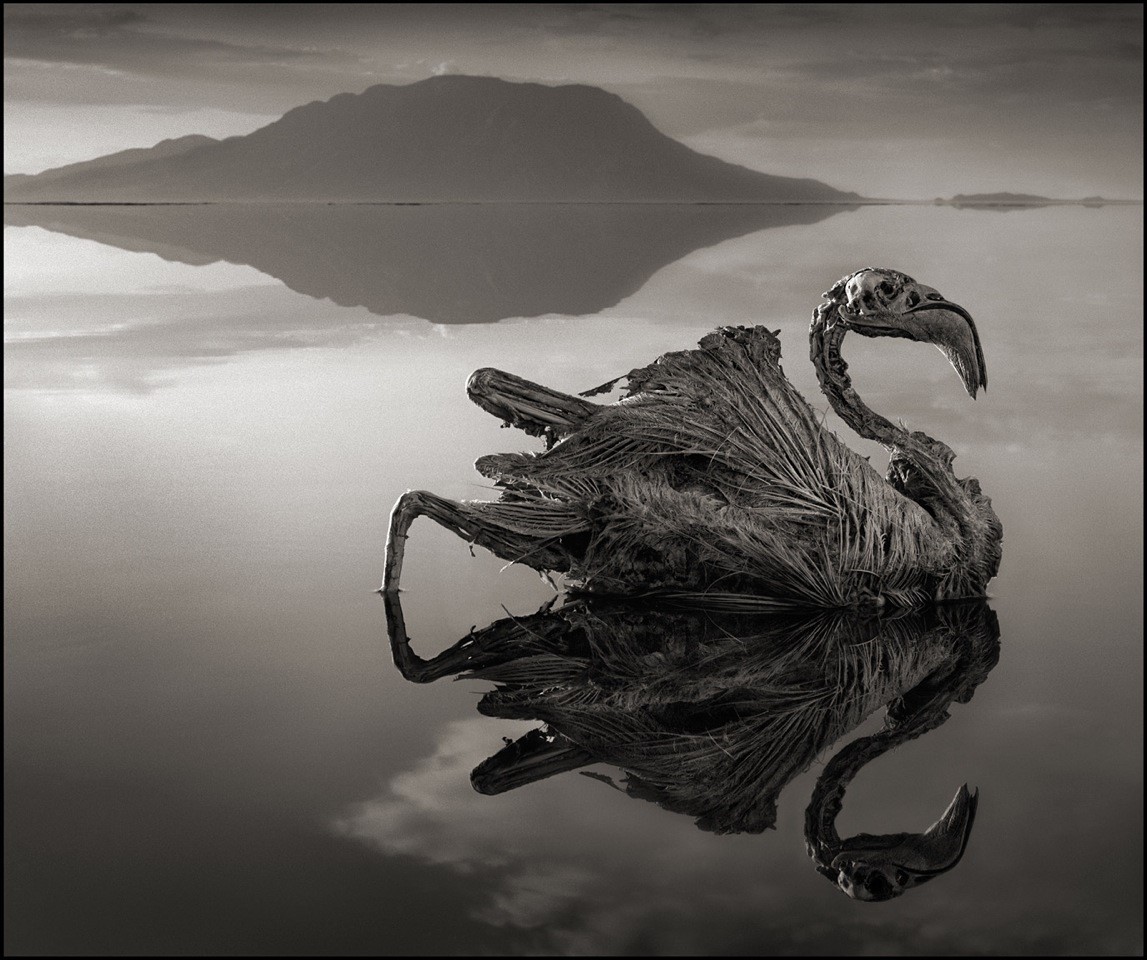
Other than serving as a breeding area for the endangered Lesser Flamingo and as a home to certain kinds of algae and bacteria, Lake Natron is inhospitable to life. Blood-red from the bacteria that live in it, the salt lake is steaming hot, with temperatures that can reach up to 140 degrees Fahrenheit, according to the New Scientist.
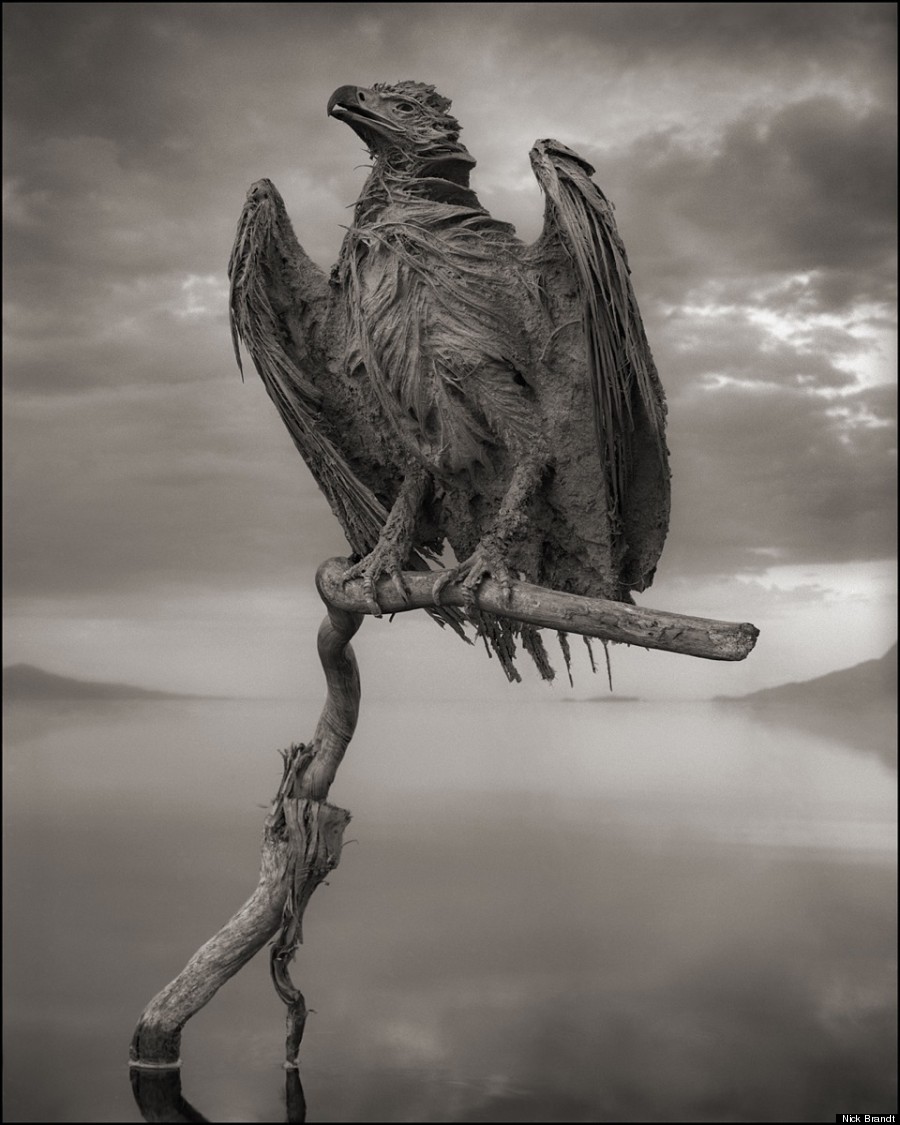
“Discovering [these animals] washed up along the shoreline of Lake Natron, I thought they were extraordinary — every last tiny detail perfectly preserved down to the tip of a bat’s tongue, the minute hairs on his face. The entire fish eagle was the most surprising and revelatory find,” Brandt, who photographed these calcified animals in 2010 and 2012, told The Huffington Post in an email Wednesday.
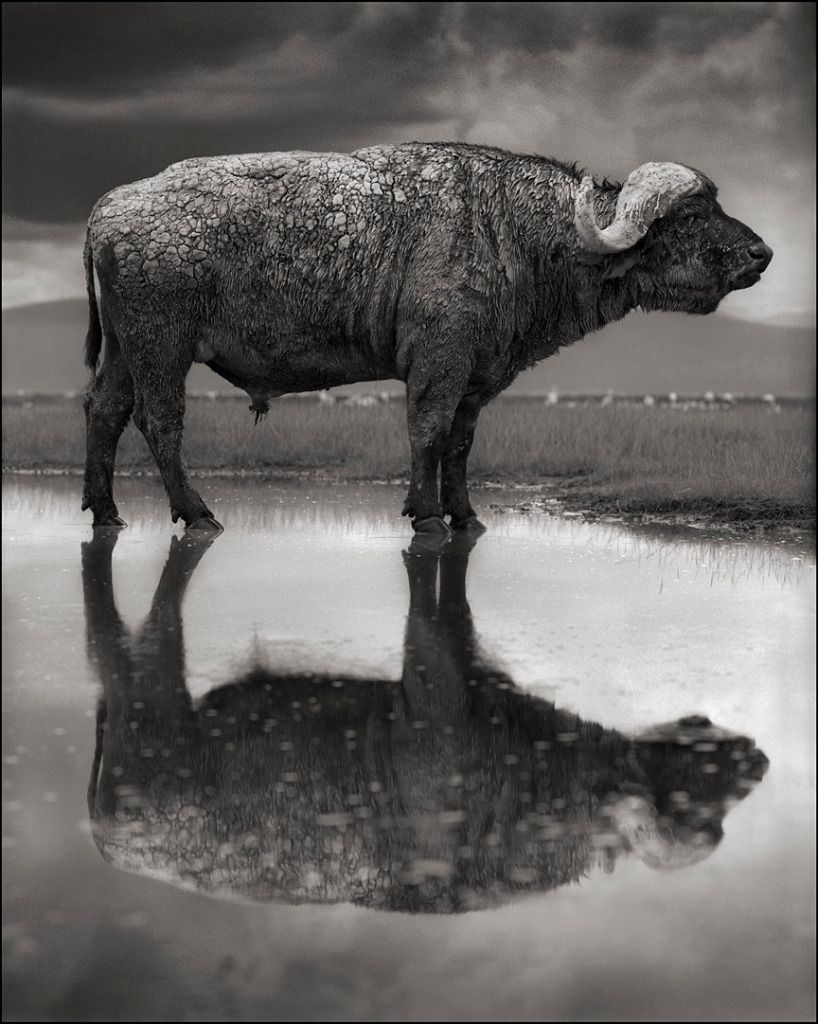
The creatures, he said, were “rock hard” from the calcification. “There was never any possibility of bending a wing or turning a head to make a better pose — they were like rock,” he said, “so we took them and placed them on branches and rocks just as we found them, always with a view to imagining it as a portrait in death.”
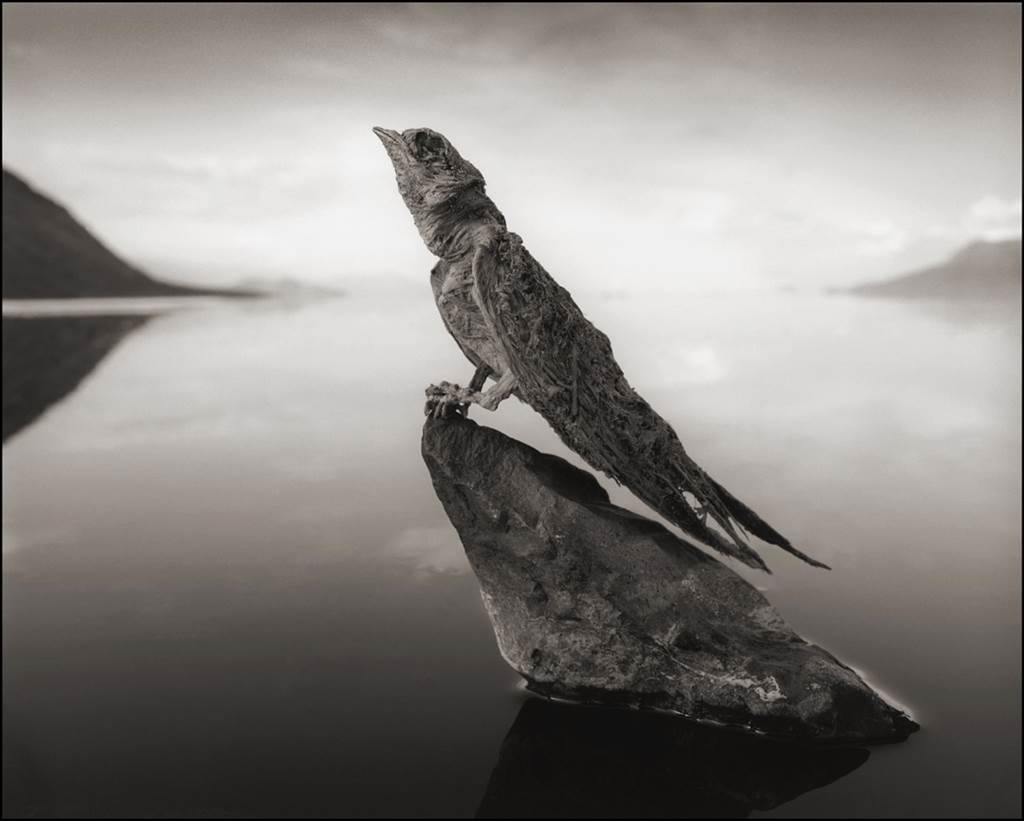
“The notion of portraits of dead animals in the place where they once lived, placed in positions as if alive again in death, was just too compelling to ignore,” Brandt said of his decision to photograph the animals. “I took these creatures as I found them on the shoreline, and then placed them in ‘living’ positions, bringing them back to ‘life’, as it were. Re-animated, alive again in death.”
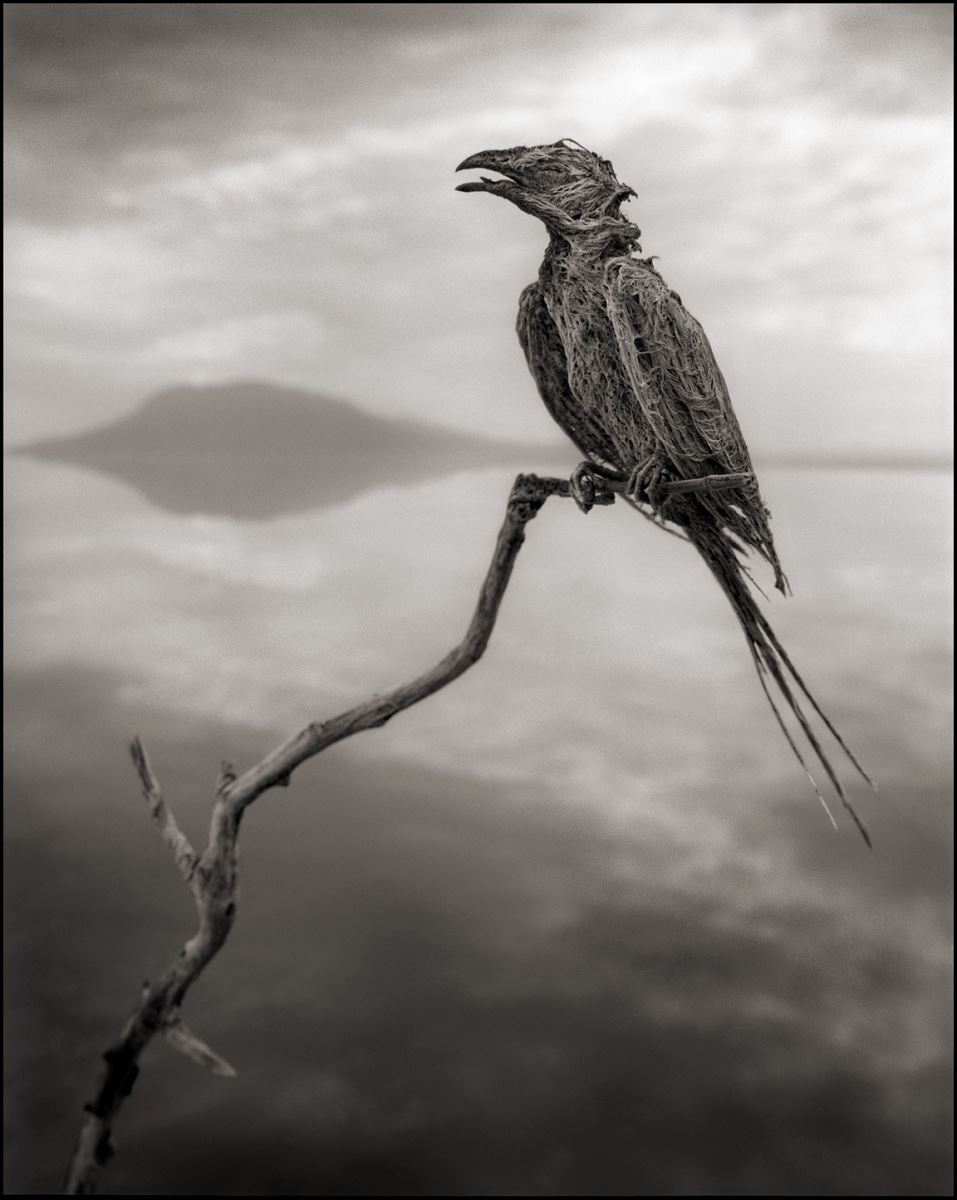
These stunning shots and other photographs can be found in Nick Brandt’s new book, Across the Ravaged Land. The title is the “third and final volume in Brandt’s trilogy of books documenting the disappearing natural world and animals of East Africa,” according to the photographer’s website.
According to huffpost











